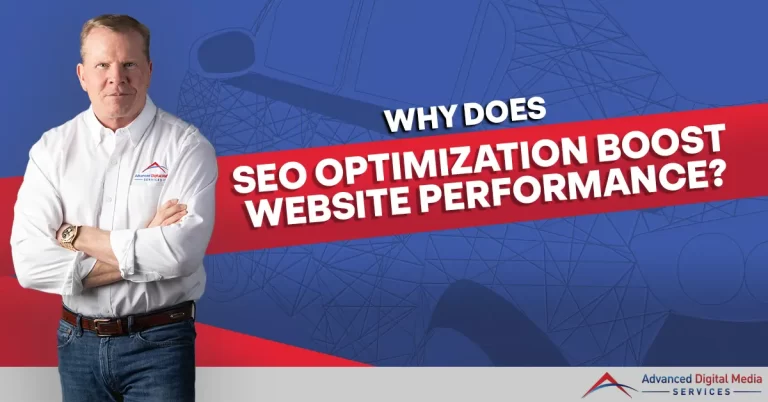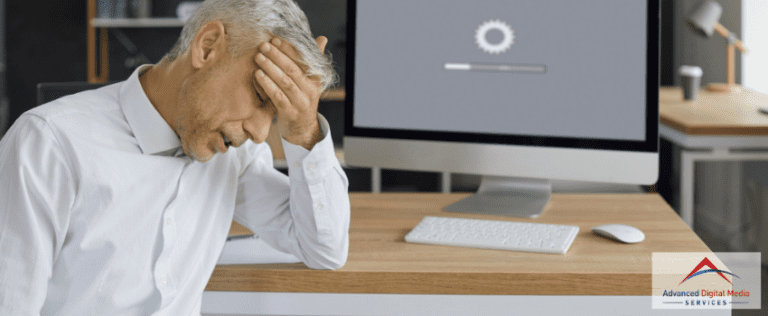Having a website is like having a virtual storefront for your business. It’s the first thing potential customers see, and it can make or break their decision to stay and explore further. But what if your website takes forever to load? In today’s fast-paced digital world, a slow website is a definite turnoff for visitors.
According to a study by Google, the probability of bounce increases by 32% when the page load time goes from 1 second to 3 seconds. Furthermore, a 1-second delay in page response can result in a 7% reduction in conversions. These numbers clearly show the importance of having a fast-loading website.
So, if you’re struggling with a sluggish site, it’s time to take action and learn how to improve website page speed. This blog will walk you through how to improve website page speed. But before we dive in, let’s first understand why your website speed is crawling in the first place.
Why is website page speed important?
Before learning how to improve website page speed, let’s understand why website page speed matters. Here are a few reasons why it’s essential to pay attention to your website’s page speed:
1. Immediate User Expectations
In today’s digital age, users have become exceptionally impatient online. They expect instant access to information. When you fail to improve site speed, it also fails to meet these immediate user expectations. Understanding why improving website page speed is essential can help retain visitors and provide a better user experience.
2. Impact on Bounce Rates

A sluggish website can significantly affect bounce rates, representing the percentage of visitors who depart your site after viewing just one page. Prolonged loading times can result in elevated bounce rates, as impatient users may quickly exit your site. It is imperative to address this issue to maintain visitor engagement and decrease bounce rates while working to improve site speed.
3. Search Engine Ranking Factors
Page speed is not only about user experience but also a critical factor in SEO. Search engines, including Google, consider it when ranking websites. A faster website is more likely to rank higher in search results, making it vital for improving your website’s visibility and organic traffic.
4. Mobile User Experience
Mobile user experience is paramount in today’s mobile-first world. Slow-loading pages on mobile devices can be even more frustrating for users, leading to higher bounce rates and decreased mobile search rankings. To improve site speed is essential to effectively cater to this growing segment of users.
5. User Engagement and Conversion Rates
Fast-loading pages keep users engaged and play a significant role in boosting conversion rates. When figuring out how to improve site speed, it’s essential to remember that users are more likely to explore your content and take desired actions when they don’t have to wait. Understanding how to improve website loading speed can directly impact user engagement and conversion success.
6. Enhanced SEO Performance
Faster websites enjoy a competitive advantage in search engine rankings. Learning how to improve website load speed can also improve SEO performance. Higher rankings and increased organic traffic can result from effective page speed optimization.
7. Competitive Advantage
A fast-loading website is a significant competitive advantage in a competitive online landscape. It not only improves user satisfaction but also sets you apart from competitors. Understanding how to improve website load speed is essential for maintaining a solid online presence.
8. Better Accessibility
Fast websites are more accessible to a broader audience, including users with slower internet connections or older devices. Recognizing the importance of improving website page speed for accessibility can help expand your reach and cater to diverse user demographics.
9. Improved User Satisfaction
User satisfaction is closely tied to website speed. A faster website contributes to overall user satisfaction, leading to a positive perception of your brand and content. It’s essential to prioritize speed as a key element of user satisfaction.
10. Lower Operating Costs
Efficiently optimized websites typically require fewer server resources and bandwidth, leading to lower operating costs. Understanding how optimizing load speed can lead to cost savings is financially beneficial and environmentally responsible.
Why is my website speed so slow?

Before diving into the tips on how to improve website load speed, let’s address a common reasons. Several factors can contribute to this issue, including:
1. Large File Sizes
When figuring out how to improve website load speed, it’s important to look into several factors.One of the primary culprits is large file sizes. This includes heavy images, videos, and other media elements significantly impacting your website’s loading time.
2. Poor Hosting
The choice of your hosting provider plays a critical role in your website’s performance and in learning how to improve website page speed. Low-quality hosting services or inadequate server resources can lead to sluggish website loading times, prompting the need to improve site speed by choosing the right hosting provider.
3. Too Many Plugins
While plugins can enhance website functionality, too many of them can bog down your site’s performance. It’s essential to balance functionality and website speed when seeking ways to improve website speed.
4. Unoptimized Code
The underlying code of your website, including JavaScript and CSS, can impact loading times. Inefficient or unoptimized code can result in slower page rendering, emphasizing the importance of understanding how to improve website loading speed by optimizing code.
5. Lack of Caching
Caching mechanisms are crucial in website speed optimization. Without proper caching, web pages may load more slowly due to repeated requests to the server. Exploring how to improve website load speed through caching is essential for faster loading times.
6. External Scripts
Integrating external scripts like ads, tracking codes, and social media widgets can slow down your website significantly if these scripts have extended load times. To improve website speed, it’s vital to assess the impact of external scripts and determine how to improve website speed by optimizing their loading.
7. Minimal Content Optimization
Efficiently optimizing website content, which includes tasks like image compression and proper text handling, plays a pivotal role in your efforts to improve website speed. By optimizing your content, you can significantly enhance your website’s loading performance, ensuring a faster and more satisfying user experience for your visitors.
8. Device and Browser Incompatibility
Compatibility issues with specific devices or browsers can hinder website performance and result in slower loading times. Addressing these issues is part of understanding how to improve website page speed for all users across different platforms and browsers.
How do I fix a slow website?

A slow website can be annoying, but you can fix it. There are ways to find out what’s making your website slow and fix those problems. Here’s how to improve website page speed:
First, figure out what’s making your site slow before you improve website speed. It could be big pictures, too many requests for data when a page loads, outdated add-ons, or a slow server. You can find out the issues by checking the performance of your website. This means looking at how fast it loads and what’s causing any delays. This is a crucial first step to improve website speed.
Now, let’s talk about how to check your website’s performance. This is essential if you want to learn how to improve website loading speed. You can use tools that are made just for this job. GTmetrix, Google PageSpeed Insights, and Pingdom are some examples. These tools can tell you how fast your site loads and give you tips on making it faster. They can help answer your questions on how to improve website loading speed.
GTmetrix will tell you how long your site takes to load and give you a score. It also offers tips on how to fix any problems. Google PageSpeed Insights does something similar. It checks how fast your site is on computers and phones and advises how to make it faster. Using these tools is a smart way to improve site speed.
These tools look at different things, like how big your images are, how many data requests are made when loading the page, and if any outdated add-ons are slowing things down. Following their advice can make your site load faster, improve website speed, and make visitors happy.
Use these tools to follow their advice and you’ll learn how to improve website page speed in no time. You’ll know you’ve done it right when your website loads quickly and visitors stick around to explore your content.
How do you optimize a website for page speed?
Every second counts when it comes to website loading times. A swift, responsive site can differentiate between a one-time visitor and a loyal customer. So, how do we bridge the gap and improve website speed? This section is dedicated to unraveling the steps on how to improve website load speed, offering a mix of technical and practical insights.
We will dissect the processes of optimizing images, leveraging browser caching, and other essential tactics. Here’s how to improve website page speed:
1. Invest in a reliable web hosting service.
A way to improve website speed is by choosing the right web hosting service. Your hosting provider plays a crucial role in delivering your website to visitors. Select a provider that can efficiently handle your traffic and ensure optimal server performance to reduce loading times.
2. Use a content delivery network (CDN).
To improve site speed, consider using a CDN. It comprises servers in various locations, delivering cached static content from the nearest server to users. This setup reduces data travel time, ensuring faster content delivery and enhanced user experience.
3. Optimize and compress images.
Images can often hinder how to improve website loading speed if not optimized. Resize and compress images to reduce file sizes without compromising quality. This practice ensures quicker page loads, offering a seamless browsing experience for visitors.
4. Minify CSS and JavaScript files.
One effective way to improve website load speed is by minifying CSS and JavaScript files. This process eliminates unnecessary characters, reducing file sizes and ensuring faster downloads, leading to quicker page rendering.
5. Enable browser caching.
Enabling browser caching is another strategy on how to improve website page speed. It instructs browsers to store copies of static files, reducing the need to retrieve them for repeat visits, thus speeding up page load times for returning users.
6. Implement website caching.
In your journey to improve website speed, implementing website caching is crucial. It stores static versions of your pages, reducing the need for dynamic generation and ensuring quick content delivery to enhance user experience.
7. Reduce the number of HTTP requests.
Minimizing HTTP requests is essential to improve site speed. Combine files, inline small CSS or JavaScript, and use CSS sprites to reduce the number of requests, ensuring quicker page loads and an enhanced user experience.
8. Review and remove unnecessary plugins.
How to improve website loading speed also involves reviewing and eliminating non-essential plugins. Keep only those necessary for functionality, ensuring your website operates efficiently and loads quickly for every visitor.
What is a good website page speed?
A good website page speed provides a seamless user experience, ensuring visitors can access your content quickly and efficiently. In an ideal world, every page would load instantly, but that’s not always true. Improving website speed is crucial.
According to Google, a page is fast if it loads within 1-3 seconds. However, most websites fail to meet this benchmark, indicating a need for strategies to improve website loading speed.
The average time it takes to load a mobile landing page entirely is 15 seconds. That’s a long wait, considering that 53% of mobile users abandon sites that take longer than 3 seconds to load. This statistic underscores the importance of improving website page speed to retain users and enhance their experience.
So, while sub-second load times are the ultimate goal, achieving them can be challenging. As a rule of thumb, if your page loads in under 3 seconds, you’re in good shape. There’s room for improvement if it takes between 3-7 seconds. Improve site speed by optimizing images, utilizing caching, and other performance-enhancing practices to reduce load times effectively.
But if it’s more than 7 seconds, you must roll up your sleeves and learn how to improve website load speed. Making changes to improve website load speed can lead to better user engagement, higher conversion rates, and improved search engine rankings. Every second counts, so it’s essential to continually work on optimizing your site’s performance.
Page Speed Metrics and Benchmarks
If you want to improve site speed, it’s important to understand what makes a good website page speed by looking at key metrics and benchmarks:
-
Load Time: The time it takes for a page to load fully. Ideally, this should be within 1-3 seconds for an optimal user experience.
-
Time to First Byte (TTFB): The time it takes for the browser to receive the first byte of data from the server.
-
First Contentful Paint (FCP): The time it takes for the first content element to be displayed on the screen.
These metrics can vary based on factors like the type of content, geographical location, and the device used to access the site.So, while sub-second load times are the ultimate goal, achieving them can be challenging. As a rule of thumb, if your page loads in under 3 seconds, you’re in good shape. There’s room for improvement if it takes between 3-7 seconds.
Improve site speed by optimizing images, utilizing caching, and other performance-enhancing practices to reduce load times effectively. But if it’s more than 7 seconds, you must roll up your sleeves and get to work. Making changes to improve website load speed can lead to better user engagement, higher conversion rates, and improved search engine rankings—every second counts, so it’s essential to continually work on optimizing your site’s performance.
Key Takeaway
In today’s digital landscape, your website is the gateway to your business, making the first impression on potential customers. However, a slow-loading website can shatter that impression in seconds. Consider this: a mere 1-second delay in page response can result in a 7% reduction in conversions, according to Google. So, if you’re dealing with a sluggish site, it’s time to take action.
This blog has explored how to improve website page speed, emphasizing the critical reasons why website speed matters. Users today expect instant access to information, and a slow website can’t meet these expectations, affecting user experience and leading to higher bounce rates. Moreover, search engines prioritize fast-loading sites, enhancing your website’s visibility and mobile user experience, a crucial aspect in today’s mobile-first era.
Faster pages keep users engaged and boost conversion rates, contributing to your website’s success. Improved SEO performance, a competitive advantage, better accessibility, and enhanced user satisfaction are additional perks of a fast-loading website.
To achieve these benefits, seeking the expertise of professional web hosting services and developers is often wise. They can optimize your website for speed, ensuring it meets and exceeds user expectations, transforming your website from sluggish to lightning-fast, and unlocking the full potential of your online presence.
Boost Your Website Speed with Advanced Digital Media Services
Is your website struggling with sluggish load times? Turn to Winter Haven’s leading SEO experts at Advanced Digital Media Services to rev up your online presence.
Our team specializes in improving website page speed, delivering exceptional user experiences, and optimizing search engines. Whether you need the perfect web hosting service, code optimization, or efficient browser caching, our experts have the know-how to make your website blazingly fast. Contact Advanced Digital Media Services, your trusted SEO company in Winter Haven, FL today to supercharge your website’s performance and leave the competition in the dust!






